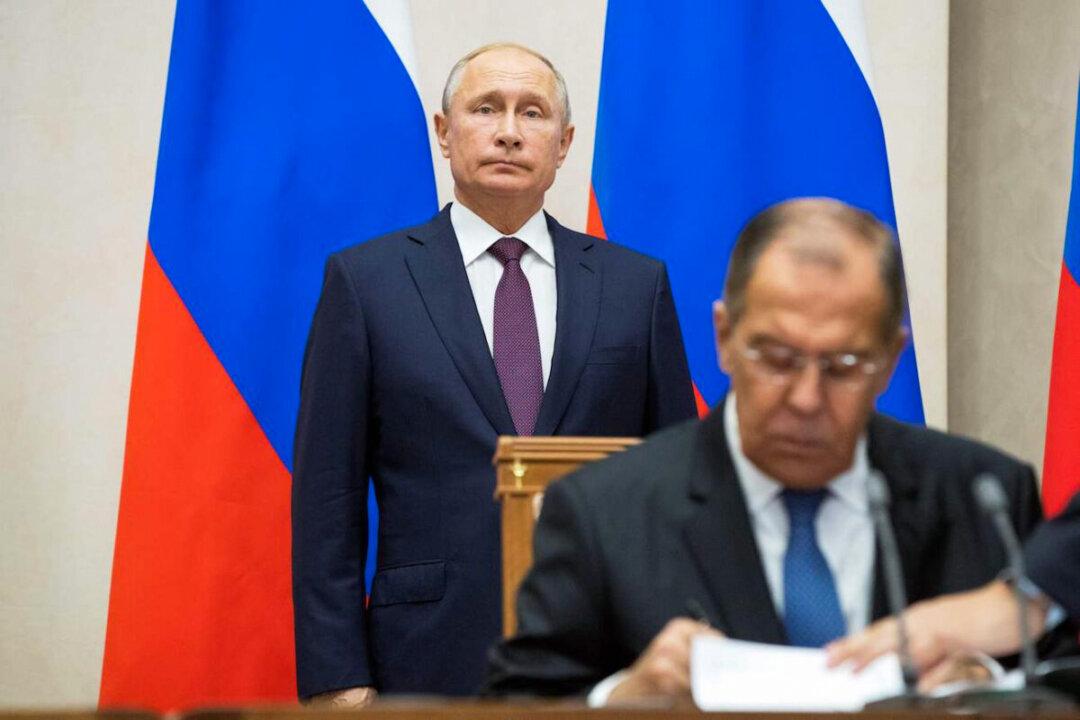The United States on late Feb. 25 imposed sanctions on Russian President Vladimir Putin, Russian Minister of Foreign Affairs Sergei Lavrov, and other members of Russia’s Security Council, marking the latest U.S. actions against Russia following previous rounds of sanctions announced earlier this week since Russia invaded Ukraine.
The European Union, the United Kingdom, and Canada have also announced sanctions on Putin and Lavrov.




